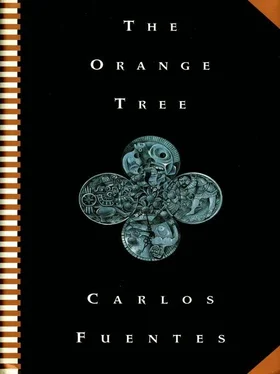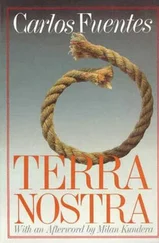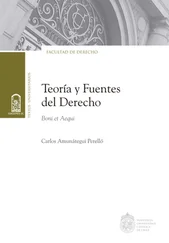* * *
Is this what I wanted to find? I know my plan was to reach China and Japan. I always said that in the end we discover what we first imagine. So getting to Asia was only a metaphor for my will, or, if you prefer, of my sensuality. From the cradle, I had a carnal impression of the roundness of the earth. My mother had two glorious breasts that I was so good at sucking that they quickly ran dry. She said she preferred washing and hanging out sheets to feeding such a voracious baby. One after another: that’s how my Italian wet nurses came, each one milkier, rounder, than her predecessor, enjoyable, with their breasts capped off with delicious tips which for me came to represent, clearly, my vision of the world. Breast after breast, milk after milk, my eyes and my lips overflowed with the vision and savor of the globe.
First consequence: I always viewed the world as a pear, very round except where it comes to a point, where it is highest. Or like a very round ball, but, instead of a ball, like a woman’s breast, with the nipple being the highest part and closest to heaven.
Second consequence: If someone told me I was insane and that an egg can’t stand on its end, I would win the argument by smashing one end of the egg and standing it up. But my mind, in reality, was thinking about biting a nipple until the breast was empty of milk, until the wet nurse shrieked. In pleasure or in pain?
I’ll never know.
* * *
That childhood of mine had a third consequence I’d better confess right now. We Genoese are not taken very seriously. In Italy, there are different levels of seriousness. The Florentines give us Genoese no credence. Of course, they see themselves as a nation of sober, calculating people with a good head for business. But the citizens of Ferrara view the Florentines as sordid, sinister, avaricious, full of deceit and tricks they use to get what they want and justify themselves in some fashion. The people of Ferrara prefer to be fixed and aristocratic, like classical medals and just as immutable and refined. Because they are (or feel) so superior, they do nothing to betray the image of their nobility and quickly fall into despair and suicide.
So, if the Ferrarese scorn the Florentines, and the Florentines scorn the Genoese, there’s nothing left for us to do but despise the loudmouthed, scummy, frivolous Neapolitans, who, in turn, have no way out but to heap filth on the sinister, murderous, dishonest Sicilians.
I want the readers of this diary, which I will soon toss into the sea, to understand what I’ve just said so that they will also understand my dramatic decision. A man of my country and my era had to suffer as many humiliations as he inflicted on others. As a Genoese, I was considered a visionary and a fraud in every court in Europe to which I brought my knowledge of navigation and my theories about the planet’s mammary circumference. Fast-talking and proud, more full of fantasy than facts. That’s how I was treated, whether in Paris, Rome, London, or the ports of the Hanseatic League. That’s how Ferdinand and Isabella — I was told by the ubiquitous gossips — talked about me after my first visit. Which is why I moved to Lisbon: all the adventurers, dreamers, merchants, moneylenders, alchemists, and inventors of new worlds congregated in the Portuguese capital. There I could be one among many, be anything I wanted while I learned what I had to learn in order to embrace the round world, grab the universe by the teats, and suck its nipples until there wasn’t a drop of milk left. I had a costly apprenticeship.
* * *
Yesterday I was approached by the first men I’d ever seen from these new lands. I was sleeping on the sand, exhausted by the last days of my voyage in the ship’s boat, alone, guided only by my excellent knowledge of the stars. In my dream, actually a nightmare, appeared the terrible scenes of storms on the high seas, the despair of the sailors, scurvy, death, the mutiny, and finally the vile decision of the Pinzón brothers to return to Spain and abandon me in a boat with three casks of water, two bottles of spirits, a sack of seeds, and my trunk filled with curiosities: trumpery, red caps, and a secret compartment with paper, quill pens, and ink. They left me in dire straits: yesterday I dreamed their toothless corpses passed by on a raft made of snakes.
I awaken, my lips covered with sand, like a second skin granted by the deepness of my sleep. First I see the sky and the fugitive procession of ravens and ducks, instantly blocked out by the circle of faces the color of the natives of the Canary Islands. They speak like birds, in a singsong, high-pitched language, and when they rise to take me by the armpits and stand me up, they reveal themselves totally naked before me.
They gave me water and led me to tentlike buildings where they gave me food I didn’t recognize and let me rest.
Over the course of the following days, cared for and protected by these people, I regained my strength. I was amazed by these men and women unsullied by the evil of war, naked, very gentle, and without weapons. Their lands were extremely fertile and very well watered. They led peaceful, happy lives. They slept in beds that swayed back and forth like cotton nets. They strolled through their villages carrying smoking coals they sucked with as great satisfaction as I had sucked breasts. They made very beautiful dugouts ninety-five palms long out of a single trunk that carried as many as one hundred and fifty people, and thus they communicated with other islands and the mainland, which they soon brought me to see.
Yes, I had reached Paradise, and I had only one problem: Should I communicate this discovery to my illustrious European patrons or not? Should I remain silent or announce my feat?
* * *
I wrote the appropriate letters so the astonished world would honor me and the monarchs of Europe would bow at my great deed. What lies didn’t I tell? I knew the mercantile ambition and the boundless greed of my continent and the rest of the world, so I described lands full of gold and spices and mastic and rhubarb. After all, these discovery companies, whether English, Dutch, Spanish, or Portuguese, were paid to put salt and pepper on the tables of Europe. So I wrote that gold nuggets may be gathered like grains of wheat. King Solomon’s mountains of gold are to be found here, safe from the waters of the flood, tall and resplendent, as if they were the breasts of creation.
Also, I was not ignorant of my contemporaries’ need for fable, the metallic wrapping that would disguise and make palatable their lust for gold. Gold, yes, but hidden in deep mines by cannibals and fierce beasts. Pearls as well, but revealed by the song of sirens, sirens with three breasts — three. Transparent seas, but plied by sharks with two phalluses — folding phalluses. Prodigious islands, defended by amazons who receive men only once a year, who allow themselves to be made pregnant and each nine months send their male children back to their fathers, keeping only the girl children. Implacable with themselves, they cut off one breast, the better to shoot their arrows.
* * *
Now, I must admit that both my mythical outlandishness and my very solid appreciation of the nobility of these savages masked the most painful experience of my life. Twenty years ago, I joined a Portuguese expedition to Africa, which turned out to be an infamous business of capturing blacks and then selling them. No one had ever seen greater cynicism. The black kings of the ivory coasts would hunt down and capture their own subjects, accusing them of rebellion and desertion. They would hand them over to Christian clergymen who would convert them and save their souls. The clergymen, in turn, would entrust them to the kind care of the Portuguese slavers, who were to teach them trades and transport them to Europe.
Читать дальше












